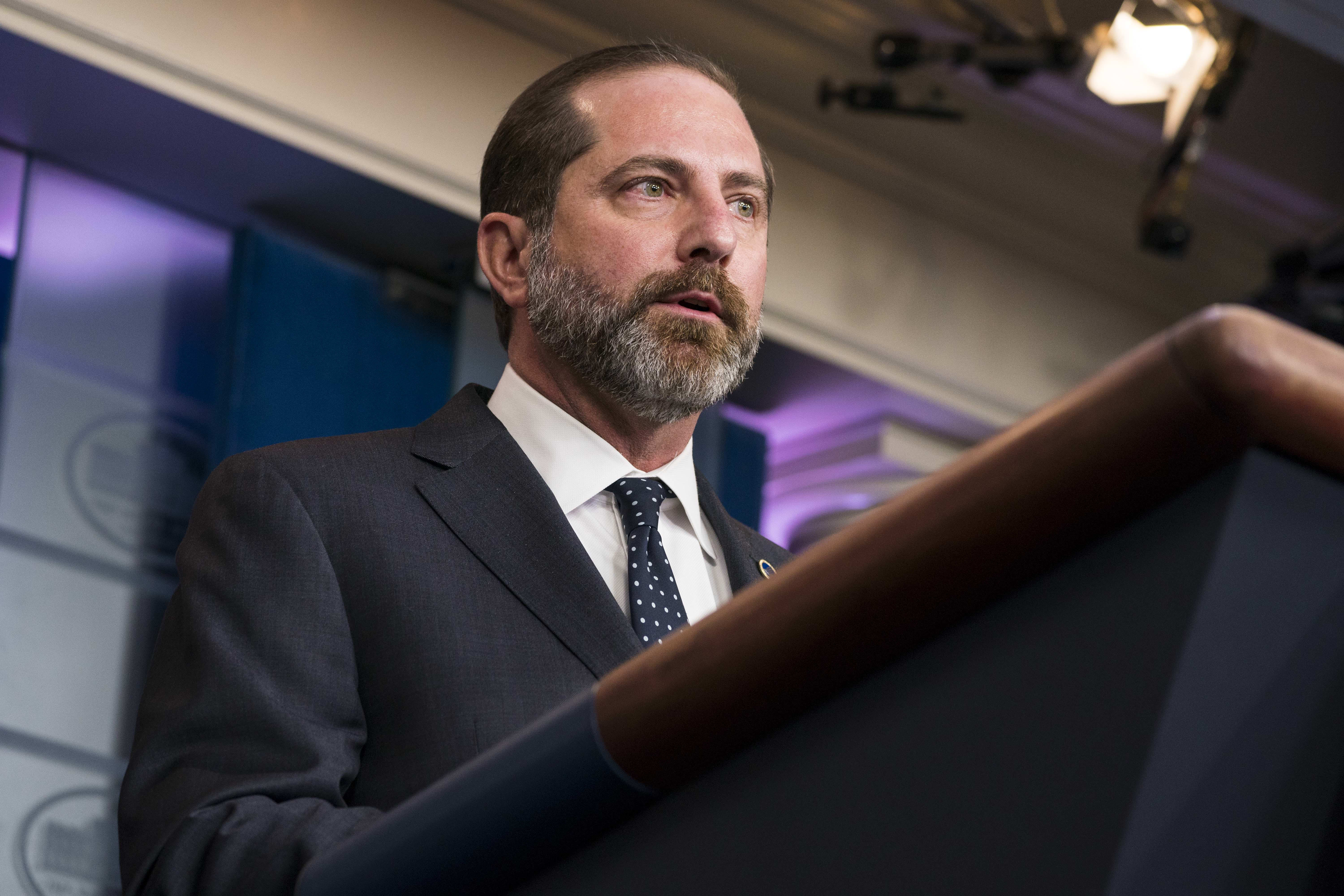
Secretary of Health and Human Services Alex Azar and members of the Trump Administration’s Coronavirus Task Force hold a press briefing at the White House on January 31, 2020 in Washington, DC.
Sarah Silbiger | Getty Images
U.S. health officials have instituted a mandatory 14-day quarantine of Americans traveling from China, starting this Sunday, marking an extraordinary step in the Trump administration’s efforts to prevent the spread of the novel coronavirus which has sickened more than 10,000 people in Mainland China.
“I want to stress the risk of infection for Americans remains low, and with these and our previous actions, we are working to keep the risk,” Azar said Friday, as he declared a public health emergency due to the virus.
The emergency declaration provides funding for states and local health officials to deal with the viral outbreak, and flexibility to reassign federal health workers in their communities to help with the response. It is a measure often enacted during national disasters.
This is the first time the U.S. has declared a public health emergency due to viral contagion since the outbreak of the Swine Flu epidemic between 2009 and 2010, and the first time in 50 years that the U.S. has imposed a mandatory quarantine order. Federal health officials have resisted such extraordinary measures until now.
“The problem of enacting a quarantine is that it’s such a disruptive social measure, economically, socially, culturally … that you only use it as your last resort, like your nuclear option,” said Dr. Howard Markel, professor at the University of Michigan school of public health, who has studied quarantines and epidemics.
“They can work if they’re done very early, but only as a temporary measure to tamp down cases,” Markel explained, adding that it is prudent to check and observe travelers who may have been exposed to a new “poorly understood easily transmittable infection.”
Former health officials say mandatory restrictions on travel present a difficult balancing act, between proactively trying to contain a virus, while at the same time trying not to be too heavy-handed.
“The way virus spreads and the way in which you combat it is a lot like a forest fire … find it early and be able to smother it before it spreads,” said Michael Leavitt, former Health and Human Services Secretary during the George W. Bush administration.
In China, the government estimates five million people left Hubei province before travel restrictions were imposed. For the 50 million people who remain on lock-down in the region, travel restrictions are now entering their second week.
“I don’t think that’s necessarily something that’s that irrational in their situation,” said Leavitt, but added “it’s quite unproductive, in most cases, to try to restrict movement to the point that commerce just can’t move because truthfully, that means the supply chain isn’t operating.”
Beyond the potential economic dislocations that arise from quarantines, most experts say widespread mandatory restrictions are not the best tool to contain an epidemic. In Liberia, mandatory quarantine measures during the deadly Ebola outbreak five years ago resulted in a massive public backlash.
“It caused a lot of protests. People found it difficult to get the things they needed like food, and work to support their families,” Dr. Jennifer Nuzzo, senior scholar at the Johns Hopkins Center for Health Security.
“When governments take very heavy-handed measures … If (people) don’t perceive those to be in their best interest, then, I really worry about the ability to implement other control measures that we know are going to be effective,” she said.
Secretary Azar has been mindful of the need to maintain public trust. Last week he told CNBC that transparency is key part of containing the spread of the coronavirus, to get people who are infected to seek treatment and to help track down others who they may have exposed to the virus.
“This is what solves public health outbreaks of infectious disease. It has in every instance in the past. It’s what we did with the latest measles outbreak. It’s what we’re doing now,” he said.
Still, on Friday Azar warned that if the number of confirmed cases of coronavirus in the U.S. likely rises over the coming days and weeks, the administration will continue to evaluate what further measures may be necessary.
Leave a Reply